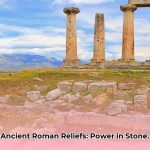Ever wondered if the profound insights from ancient Rome still hold power in our complex modern lives? The Roman Empire, a civilization renowned for its unparalleled architectural marvels, sophisticated legal systems, and formidable military might, also gifted humanity a treasure trove of philosophical and practical wisdom. These aren’t merely historical relics; they are sharp, timeless principles surprisingly applicable to today’s challenges.
Explore more on the topic of Roman wisdom here.
This article delves into the most impactful Roman quotes and Stoic philosophies, revealing their core meanings and providing concrete, actionable strategies to integrate them into your daily life. Whether you’re aiming to lead with greater conviction, navigate complex projects with strategic foresight, or simply cultivate deeper personal well-being, prepare to unlock ancient wisdom that can fundamentally reshape your approach to the world.
Unlock Enduring Wisdom: Famous Ancient Roman Quotes Explained
The enduring relevance of Roman wisdom stems from its focus on universal human experiences: ambition, adversity, purpose, and the pursuit of a meaningful life. These famous ancient Roman quotes offer more than historical insights; they provide practical frameworks for personal development, effective leadership, and strategic decision-making in any era.
1. Conquer with Clarity: “Veni, Vidi, Vici.”
“Veni, Vidi, Vici” (I came, I saw, I conquered). Uttered by Julius Caesar in 47 BC after a swift victory, this iconic phrase encapsulates the Roman ideal of decisive, efficient action. It speaks to speed, clarity of purpose, and the relentless pursuit of objectives.
- Meaning: This quote is a testament to bold, rapid execution. It emphasizes preparation, keen observation, and unwavering determination to achieve success.
- Modern Application: In a fast-paced world, speed and precision are paramount. Apply this by setting clear, achievable goals, gathering necessary information swiftly, and then executing your plan with conviction. For leaders, it means cutting through bureaucracy to make timely decisions. For individuals, it’s about tackling tasks head-on rather than procrastinating.
2. Embrace Courage: “Audentes Fortuna Iuvat.”
“Audentes Fortuna Iuvat” (Fortune favors the bold). While commonly associated with Virgil’s Aeneid, this sentiment permeated Roman thought, emphasizing the respect for daring action. The Romans understood that significant achievements rarely result from timid approaches.
- Meaning: Success often comes to those willing to take calculated risks and step outside their comfort zones. It is a powerful encouragement to overcome fear and act decisively.
- Modern Application: What significant project have you put on hold, or what difficult conversation are you avoiding? This principle urges you to take that first bold step. In business, it translates to innovating, entering new markets, or pitching ambitious ideas. Personally, it means pursuing new skills, challenging limiting beliefs, or speaking your truth.
3. Cultivate Holistic Well-being: “Mens Sana in Corpore Sano.”
“Mens Sana in Corpore Sano” (A sound mind in a sound body). First written by the satirist Juvenal, this proverb highlights the inherent connection between physical and mental health. The Romans understood that genuine happiness and effectiveness depend on nurturing both aspects of self.
- Meaning: True well-being requires balance. A healthy body supports a clear mind, and a disciplined mind motivates a healthy body. Neglecting one impacts the other.
- Modern Application: Prioritize physical activity, balanced nutrition, and sufficient rest to fuel your cognitive functions. Simultaneously, challenge your mind with continuous learning, mindfulness practices, and intellectual engagement. Integrate moments of quiet reflection to maintain mental clarity, reducing stress and enhancing your overall resilience.
4. Strategic Preparedness: “Si Vis Pacem, Para Bellum.”
“Si Vis Pacem, Para Bellum” (If you want peace, prepare for war). Attributed to the military writer Vegetius, this seemingly paradoxical adage reveals the Roman foresight in conflict prevention through robust readiness.
- Meaning: It’s not about seeking conflict, but about being so formidable and prepared that potential adversaries are deterred. Proactive readiness ensures security and minimizes the likelihood of actual confrontation.
- Modern Application: In business, this means thorough competitive analysis, robust contingency planning, and building strong organizational capabilities before challenges arise. In personal life, it involves foresight in financial planning, emergency preparedness, or maintaining open communication in relationships to prevent simmering resentments from escalating. This fosters resilience across all domains.
5. Seize the Present: “Carpe Diem.”
“Carpe Diem” (Seize the day). This renowned phrase from the poet Horace urges us to make the absolute most of the present moment, rather than dwelling on past regrets or future anxieties.
- Meaning: Life is fleeting; therefore, live fully and meaningfully now. Embrace opportunities as they arise and avoid procrastination.
- Modern Application: Actively identify immediate opportunities in your daily life. Is there a task you’ve been putting off? A new skill you could start learning today? A kind word you could offer? Shift your focus from “someday” to “today,” transforming intentions into impactful actions.
6. Persistence Prevails: “Dripping water hollows out stone, not through force but through persistence.”
Attributed to the poet Ovid, this powerful image illustrates the quiet, cumulative impact of consistent effort.
- Meaning: Even the most formidable obstacles can be overcome through steady, unyielding perseverance. Small, consistent actions can lead to monumental achievements over time.
- Modern Application: This is a powerful antidote to feeling overwhelmed by large goals. Break down complex projects into manageable daily tasks. Dedicate consistent, even if small, periods to your aspirations. Whether learning a new language, building a business, or mastering a skill, daily persistence will yield profound results.
7. The Power of Legacy: “The life of the dead is placed in the memory of the living.”
“The life of the dead is placed in the memory of the living.” – Marcus Tullius Cicero. One of Rome’s greatest orators and philosophers, Cicero frequently emphasized the importance of enduring reputation and the impact one leaves on history.
- **Meaning










